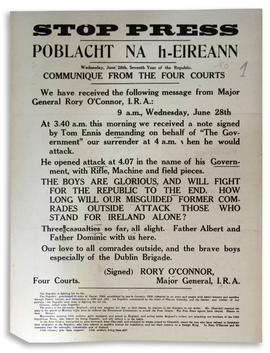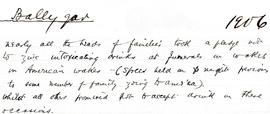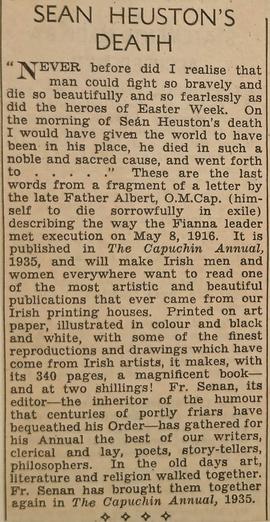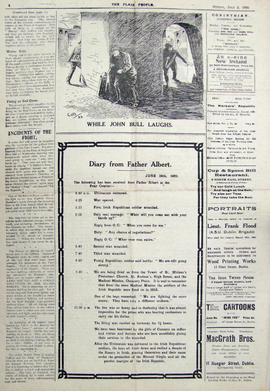Poblacht na hEireann (War News)
- IE CA IR-1/8/3/4
- File
- 28 June 1922-16 Mar. 1923
Part of Irish Capuchin Archives
The file comprises the following editions: 28 June 1922 (no. 1) – 16 Mar. 1923 (no. 175). The series is missing a small number of editions but there are multiple copies of other issues extant in the file. The publication began with the attack on anti-treaty republicans in the Four Courts, and the publication focused on ways of conveying news of the changing situation to journalists, republican supporters and the general public. The first (un-numbered) edition was styled as a communiqué from Rory O’Connor, Major General, IRA. It read:
‘The boys are glorious, and will fight for their Republic to the end. How long will our misguided former comrades outside attack those who stand for Ireland alone?’ Reference is made in this first communiqué to Fr. Albert Bibby OFM Cap. and Fr. Dominic O’Connor OFM Cap. who were ministering to the besieged republicans.





